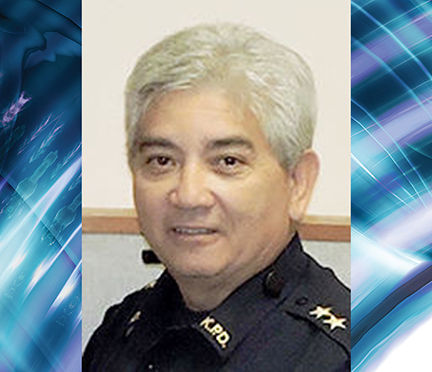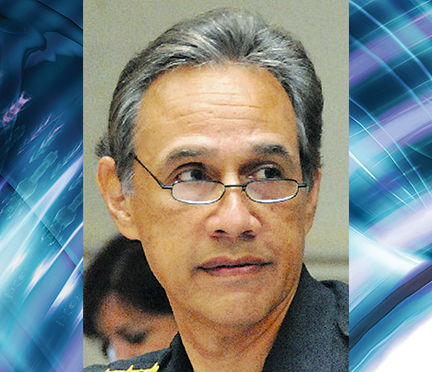LIHUE — An assistant chief of police with more than 20 years with the Kauai Police Department filed a civil lawsuit Monday against the police chief, the department and the county of Kauai.
Mark Begley, 47, alleges he was a victim of retaliation after he reported a fellow officer’s complaint of sexual discrimination when she requested a transfer to a higher paying position in 2011.
“Assistant Chief Begley did what he was trained to do and followed procedures by making a formal report when a female police officer made a discrimination and hostile work environment complaint against another assistant chief,” Lyle Hosoda, attorney for Begley, said in a statement. “Since making the report over four years ago, Assistant Chief Begley has been harassed, intimidated and retaliated against by the Chief and others aligned with him.”
County spokeswoman Sarah Blane said the county had received an electronic copy of the complaint from the federal courts but had not yet been formally served as of Tuesday afternoon and declined to comment on pending litigation.
The 46-page complaint also names two additional assistant chiefs, Roy Asher and Michael Contrades, whom Begley claims allegedly aided and abetted the alleged discriminatory practices of Perry and KPD.
The complaint includes five counts and multiple Equal Employment Opportunity Commission complaints against KPD and Chief Darryl Perry.
Begley claims “he has suffered extreme anguish, pain, emotional distress, humiliation, damage to his reputation, loss of income and other general and special damages in amounts to be proven at trial…,” according to the lawsuit.
Begley, who has been on medical leave since 2012, alleges that in 2011, he was working as a police inspector with KPD when he was informed that Asher had allegedly made “an inappropriate gesture and comment to a subordinate female officer” who had previously requested a transfer to a higher paying position within vice at KPD. Asher denied the request due to the complaint she made against him, Begley alleges.
When Begley reported the matter to Perry, who in turn did not authorize an investigation, Begley alleges. Instead Asher sent out an email with “false, disparaging information about (Begley),” which created “additional hostility for female officer whom he previously discriminated against,” Begley alleges in his complaint.
Begley claims he told Perry multiples times about the retaliation against him until he had to call a meeting with the deputy county attorney. The chief finally authorized an investigation after failing to dissuade the female officer from filing a formal Equal Employment Opportunity Commission complaint against KPD, the lawsuit alleges.
During a staff meeting in 2012, Begley alleges in the lawsuit he told Perry and the chiefs that the female officer had filed a complaint with the mayor’s office “against them regarding the sex discrimination and harassment she suffered.” He also told them to avoid contact with her because “she was not comfortable with their presence in her immediate area,” the lawsuit alleges.
While the office of Mayor Bernard Caravalho Jr. investigated the female officer’s complaints, Perry was placed on administrative leave, according to reports.
On Feb. 22, 2012, Perry attempted to return to work but was barred from entering his office by Begley under a directive from the mayor, he alleges.
Begley, who is requesting a jury trial, also alleges that while on medical leave, the county tried to terminate his employment.
As a result of the retaliation, Begley has filed three EEOC complaints against the county.
On Nov. 21, 2012, Begley filed a EEOC complaint against the county in which he said “officers were instructed not to brief or discuss police investigations with me.”
“On May 14, 2012, I received a letter from the Police department citing a long list of disciplinary charges against me surrounding the Feb. 22, 2012 incident,” Begley said in the 2012 EEOC complaint. “I am currently still out on medical leave and Chief Perry has still been retaliating against me.”
In his 2013 complaint against the county, Begley said he feared he would be terminated from his position and “that none of his witnesses will come forward out of fear of retaliation.”
The EEOC in 2014 found reasonable cause on two of the three complaints and said Begley was subjected to retaliation for engaging in protected activity in both cases by KPD and that KPD violated the statutes under Title VII of the Civil Rights Acts of 1964, according to the EEOC determination letter attached to the lawsuit.
Although a spokesperson in the Civil Rights Division at the Department of Justice was not immediately available for comment, a letter attached to Begley’s complaint stated the DOJ would not file a suit on his behalf.
It said Begley had 90 days to file his own civil suit against KPD, Perry, the assistant chiefs and the county.
A call to the State of Hawaii Police Officers Union President Tenari Ma’afala for comment was not immediately returned.
Begley was employed at KPD since 1989 until 1994. He then left KPD to work at the Hawaii Department of Public Safety until 1996.
In 1996, Begley returned to KPD as a police services officer and in 2007, he was promoted to lieutenant, and in 2011, he was promoted to police inspector in KPD’s Administrative and Technical Bureau.




